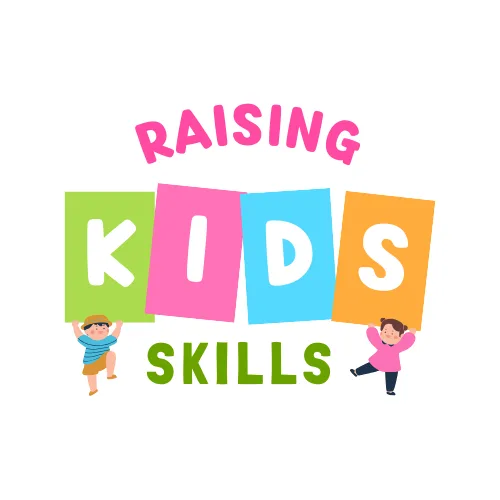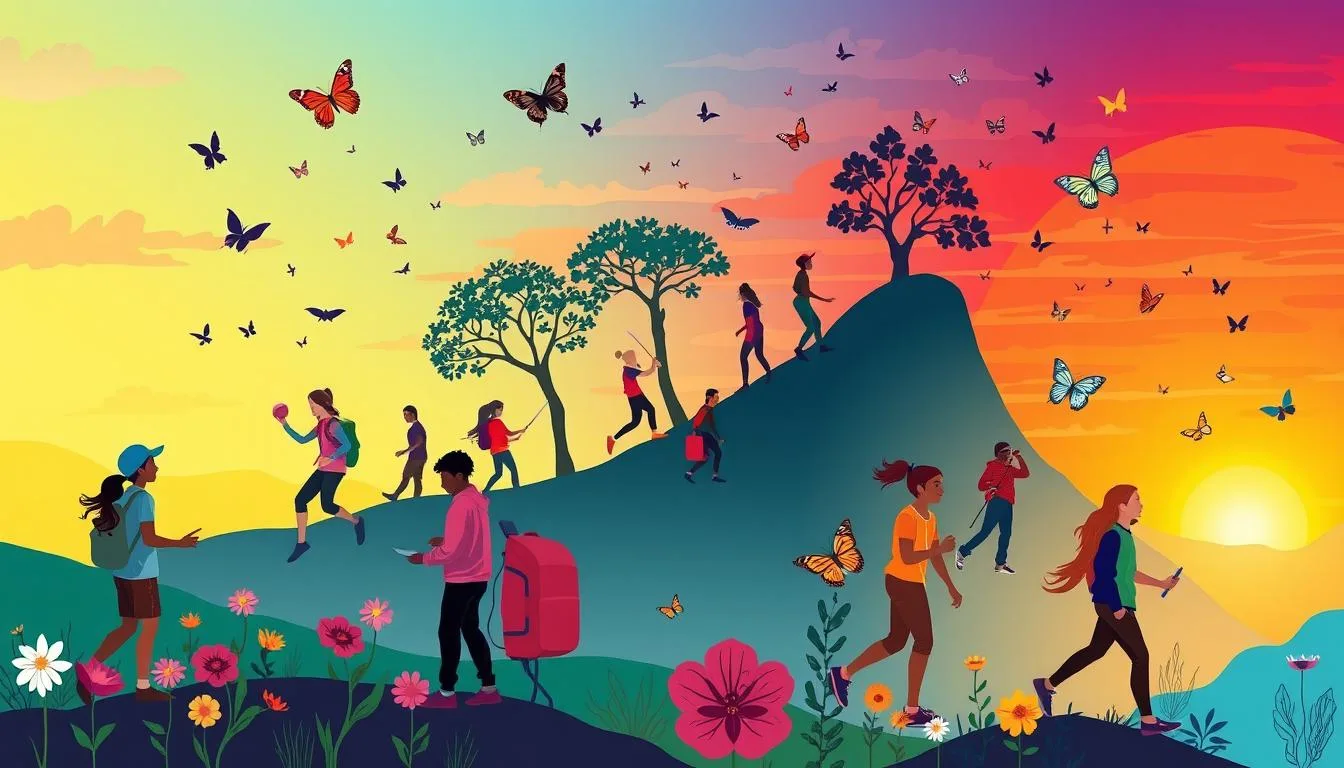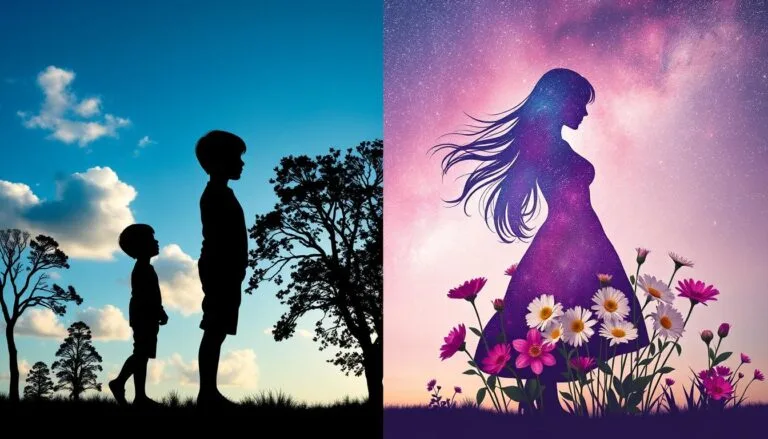Growing Up: Between Childhood and Adulthood
As a young person, you might feel stuck between the fun days of childhood and the big responsibilities of adulthood. This time, called adolescence, brings lots of changes. You look forward to freedom and independence, but adulthood might not match your dreams.
Going from childhood to adulthood is a personal and complex journey. You might feel excited, unsure, and even miss your old life. This change isn’t just about growing taller or older. It’s also about deep emotional and thinking changes that help you understand the world and your role in it.
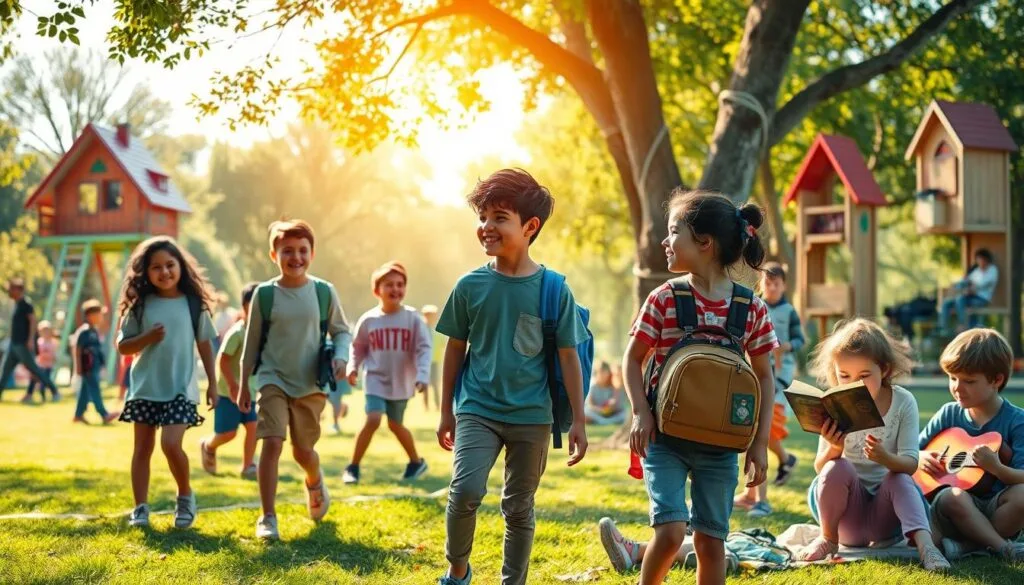
Key Takeaways
- The transition from childhood to adulthood involves significant physical, emotional, and cognitive changes.
- Adolescence is a complex period marked by identity formation, increased responsibilities, and adapting to new social dynamics.
- Understanding the nuances of this journey can help you navigate the challenges and embrace the opportunities that come with growing up.
- Early life experiences, including trauma and adversity, can have long-lasting impacts on your development and well-being.
- Developing emotional intelligence and self-awareness can be pivotal in navigating the transition to adulthood.
Understanding the Journey Between Childhood and Adulthood
The move from being a kid to becoming an adult is a big change. It starts with wanting to be independent, feeling different physically and emotionally, and figuring out who you are. Young people start to learn about themselves, their values, and their role in the world.
Early Signs of Transition
One of the first signs of growing up is wanting to do things on your own and questioning rules. Puberty brings big physical changes, and you might feel more emotional. You start to try new things and see life in a new way.
Physical and Emotional Changes
The maturation process brings many changes. You might grow taller, feel different emotions, and start to notice your body changing. Emotionally, you become more aware of your feelings and what you want.
The Role of Identity Formation
During this time, finding out who you are is key. You explore what you believe in and what you want to achieve. This journey helps you develop a strong sense of self, which guides your choices and actions as an adult.
| Key Aspects of the Transition | Percentage of Individuals Affected |
|---|---|
| Initial belief in unparalleled freedom as adults | 63% |
| Discovered financial stability requires hard work | 89% |
| Affirmed the importance of connections and qualifications for career advancement | 74% |
| Contemplated giving up but recognized the necessity of perseverance | 48% |
| Realized the need to adapt to changes and find solutions to obstacles | 67% |
The journey from childhood to adulthood is complex. Understanding the early signs, physical and emotional changes, and the importance of identity formation helps. This way, you can navigate this time and become a more aware and strong adult.
Childhood Dreams vs Adult Realities
As we grow up, our life expectations from childhood often meet the harsh reality of adulthood. We dream of endless freedom and possibilities. But, as adults, we face the hard realities of responsibility.
Many start with dreams of studying literature or fine arts. But, they end up with degrees in industrial or general psychology. Our interests change as we grow, sometimes straying from our childhood dreams.
The leap from being young and hopeful to facing adult challenges is tough. Doubt, anxiety, and distractions can make it hard. Yet, we must find ways to overcome these obstacles.
Only 20% of people follow their childhood dreams in their careers. By 25, most give up due to money and societal pressure. But, 65% find jobs that meet their practical needs, even if they’re not their dream jobs.
Yet, there’s hope. About 15% of people still chase their childhood dreams. And 30% find a balance between their current needs and old interests.
“The key is to find a balance between maintaining childhood aspirations and adapting to the practical demands of adult life.”
The path from childhood to adulthood is complex. It’s filled with challenges and chances. By embracing adult responsibilities and holding onto our childhood dreams, we can make this journey meaningful and fulfilling.
The Impact of Early Life Experiences on Development
Your childhood, both good and bad, shapes who you are today. It affects your health and happiness as an adult. Your early years guide your journey.
Trauma and Its Long-term Effects
Childhood trauma, like abuse or neglect, can harm your health for years. Studies show that facing tough times early on can lead to problems later. This includes childhood trauma, mental health issues, and chronic diseases.
Such experiences can mess with your body’s stress response. They might hurt your immune system and heart health. Symptoms of PTSD, like flashbacks and emotional shutdown, can last a lifetime.
Building Resilience Through Challenges
But, you can grow strong despite trauma. Facing challenges helps you develop coping skills. Therapy, like trauma-focused cognitive-behavioral therapy, is key to healing and growth.
The Role of Family Support
Your family dynamics in childhood matter a lot. A loving family helps you manage stress and avoid mental health problems. But, tough family times, like poverty or illness, can harm your health long-term.
Knowing how your early life shaped you can help you tackle challenges. It’s a step towards building the resilience needed to succeed as an adult.
Navigating New Responsibilities
Young people entering adulthood face many new challenges. Adulting means taking on big roles and duties. It’s both exciting and scary. Learning key life skills is essential, like managing money, making big decisions, and taking care of yourself.
This journey to independence means doing things on your own that parents used to do. Skills like budgeting, time management, and self-care are important. It’s a tough time, but it’s a big step towards being on your own.
Finding the right balance is crucial. Not enough responsibility can hold back your growth. Too much too soon can lead to bad choices and doubt. Talking to other parents can help figure out what’s right for you.
This journey needs courage, flexibility, and a willingness to learn from mistakes. By embracing adulthood, young people can grow and discover themselves. They can shape their own futures with confidence and freedom.
“The key to adulting is finding the right balance between responsibility and freedom.”
Social Relationships and Identity Formation
As you grow from a child to an adult, your social ties shape your identity. Peer relationships become key, guiding your choices and values. At the same time, your family dynamics change as you seek independence but still need their support.
Peer Relationships
Your friends and classmates greatly influence your growth and identity. The connections you make can shape your behaviors and beliefs. Exploring new social circles and interests helps you find your passions and understand yourself better.
Family Dynamics
Your family ties are vital during this time. You may want more freedom but still need your family’s support and advice. Balancing independence and family guidance can be tough but is also a chance for personal growth and identity discovery.
Personal Growth Through Social Connections
The relationships you build offer great chances for personal growth. Through interactions with friends and family, you learn about yourself, develop empathy, and understand your values and dreams. These connections help you explore your identity and find your place in the world.
| Peer Relationships | Family Dynamics | Personal Growth |
|---|---|---|
| Influence personal choices and values | Seek independence while needing support | Discover passions and develop sense of self |
| Explore new social circles and interests | Navigate balance between freedom and guidance | Learn about values, empathy, and aspirations |
“The people you surround yourself with have a profound impact on your identity and personal growth. Choose your social connections wisely, as they can either uplift or hinder your journey of self-discovery.”
Managing Health and Well-being During Transition
As you move from childhood to adulthood, taking care of your health is key. This time can bring new challenges, like managing chronic conditions like diabetes. It’s also important to keep your mental health in check, as stress, anxiety, or depression can be common.
Learning healthy ways to cope and sticking to a self-care routine can help a lot. Remember, asking for help with your health is a sign of strength, not weakness. By focusing on your well-being, you can smoothly transition into adulthood and set a healthy path for your future.
Strategies for Maintaining Physical Health
- Establish a regular sleep schedule to ensure you get enough rest
- Incorporate physical activity into your daily routine, such as going for walks or trying a new sport
- Maintain a balanced, nutritious diet to fuel your body
- Regularly visit your healthcare providers for check-ups and to manage any chronic conditions
Prioritizing Mental Health
- Practice stress management techniques, like meditation or journaling
- Build a strong support system of friends, family, or mental health professionals
- Engage in hobbies and activities that bring you joy and a sense of purpose
- Seek professional help if you’re struggling with your mental health
By focusing on your physical and mental health during this time, you can build the resilience and self-care habits that will serve you well throughout adulthood.
“The greatest weapon against stress is our ability to choose one thought over another.” – William James

Emotional Intelligence and Self-Discovery
As you grow from a child to an adult, learning about emotional intelligence and self-discovery is key. It’s important to know your core values, find ways to cope, and understand yourself better. These steps are vital for your growth.
Understanding Personal Values
Reflecting on your personal values can give you insights into your choices. Knowing your guiding principles helps you act in line with what’s important to you. This leads to a more fulfilling and authentic life.
Developing Coping Mechanisms
Adulthood brings challenges and stress. It’s crucial to find healthy ways to cope, like mindfulness, social support, or exercise. Learning to manage your emotions and stress is key for your well-being.
Building Self-awareness
Self-awareness is a powerful tool for adulthood. Knowing your emotions, strengths, and weaknesses helps you make better choices and build strong relationships. Reflecting on yourself, seeking feedback, and embracing growth are all important for self-understanding.
Emotional intelligence and self-discovery are lifelong journeys. Embracing this path leads to emotional growth, self-understanding, and essential coping skills for your adult life.
“The greatest gift you can give yourself is a little bit of your own attention.” – Dr. Amit Sood
Academic and Career Considerations
As you get older, choosing your academic and career path is key. This is a time to explore, set goals, and learn skills for your future.
Thinking about education planning means looking at college or vocational training. It’s important to match your interests with your career goals. You might visit colleges, talk to advisors, or get work experience.
Also, start thinking about your future goals. Identify careers, understand the job market, and plan how to get the right skills. This helps you move smoothly from school to work.
This time is full of excitement and uncertainty. But with good planning and exploring, you can succeed in the future.
| Opportunity Factors | Low-Income Households | High-Income Households |
|---|---|---|
| Opportunities Experienced | 1 or fewer | 6 or more |
| Odds of Graduating from a 4-Year College | ~10% | ~50% |
| Increase in Annual Salary | ~$10,000 | ~$10,000 |
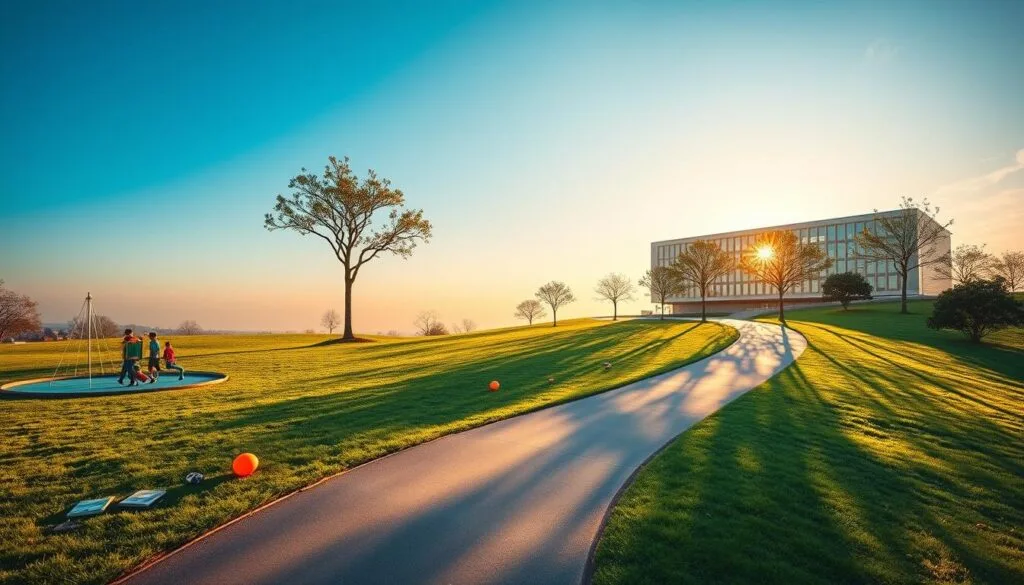
“Positive experiences during emerging adulthood may impact long-term outcomes, as positive emotions, experiences, and behaviors can have lasting effects.”
Adapting to Independence and Freedom
Starting your journey from childhood to adulthood is both exciting and scary. You’ll need to handle more financial responsibility, make better decision-making skills, and set clear personal boundaries.
Financial Responsibility
Managing your money is a big part of growing up. You’ll need to make a budget, save for the future, and understand credit. Learning about financial literacy helps you make smart choices about money and your future.
Decision-making Skills
With more personal autonomy, your choices matter more. It’s important to learn how to make good decisions. Practice weighing options, thinking about the future, and trusting your gut to make choices that fit your values and goals.
Personal Boundaries
Setting and keeping healthy personal boundaries is key. This means learning to say “no,” setting limits, and choosing friends who respect your life choices and personal autonomy. This helps you respect yourself and build strong relationships.
Adapting to independence and freedom is a journey of self-discovery and growth. By taking on responsibilities, improving decision-making, and setting boundaries, you can confidently navigate this new chapter and seize the opportunities it brings.
Conclusion
The journey from childhood to adulthood is full of changes. It involves physical, emotional, and social shifts. This journey has its challenges but also chances for growth and learning.
Support from family, friends, and professionals is crucial. They offer guidance and encouragement. With their help, you can handle the ups and downs of growing up.
Every person’s journey is unique. It’s shaped by their experiences and personal growth. By facing this journey head-on, you can gain valuable skills and insights.
It’s important to be open-minded and eager to learn. This way, you can grow both personally and professionally. Embracing this journey can lead to a fulfilling adult life.
Don’t hesitate to see other articles on my bloghttps://www.skillsraisingkids.com/
FAQ
What are the early signs of the transition from childhood to adulthood?
Early signs include wanting to do things on your own and questioning rules.
What are the physical and emotional changes during this transition?
You might start to notice changes in your body and mood swings. You also become more aware of yourself.
How does identity formation play a role in this transition?
It’s a time to figure out who you are. You explore your values and beliefs by trying new things and learning about yourself.
How do childhood dreams of adulthood differ from the realities?
Kids often dream of adulthood being perfect. But, it’s full of real-life challenges like money management and career choices. It can be hard to adjust.
How can early life experiences impact adult development?
Bad experiences in childhood can affect your health later. But, facing challenges and having family support can help you grow stronger.
What new responsibilities do young adults face during this transition?
Young adults have to handle money, make big decisions, and take care of their health. They need to learn how to do these things.
How do social relationships influence identity formation during this transition?
Friends and family play a big role. They help shape your choices and values. It’s a time to grow and understand yourself better.
How can young adults manage their physical and mental health during this transition?
Taking care of yourself is key. This includes managing health issues and finding healthy ways to deal with stress. Asking for help is okay.
A resource for taking care of children’s physical healthhttps://healthykidshealthyfuture.org/5-healthy-goals/get-kids-moving/resources/
What is the role of emotional intelligence and self-discovery in this transition?
Knowing yourself and how to handle emotions is important. It helps you grow and become more mature.
What are the key academic and career considerations during this transition?
You need to decide about school, work, or training. It’s important to set goals and explore different paths. You’ll learn new skills along the way.
How do young adults adapt to independence and freedom?
It’s about learning to handle money and make choices on your own. It’s exciting but can also feel scary.
